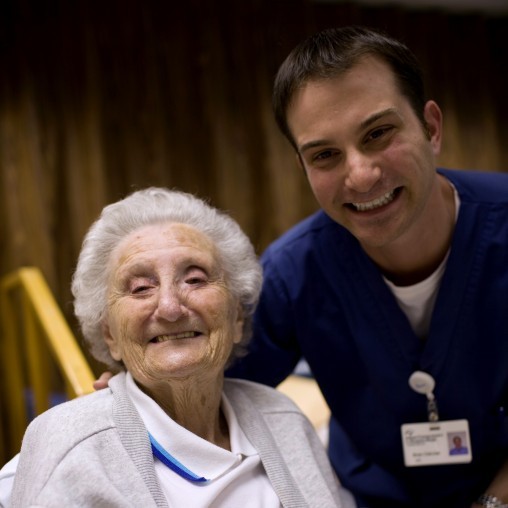
International Holocaust Remembrance Day is January 27, 2022
The Jewish Federations of North America’s Center on Holocaust Survivor Care and Institute on Aging and Trauma is proud to award 55 grants totaling $5,325,000 to organizations across the U.S. This represents the largest number of grants and largest dollar amount in the program’s history. Grantees will deliver social services to thousands of Holocaust survivors, diverse older adults with a history of trauma, and their family caregivers. Select grantees will grow their outreach capacities to serve even more people through a partnership with the KAVOD Survivors of the Holocaust Emergency Fund (“KAVOD SHEF”).
This year's grantees include: Network of Jewish Human Service Agencies (NJHSA), which uses Uniper Technology to prevent social isolation among older adults in more than a dozen communities; Bet Tzedek, which provides access to legal services for Holocaust survivors across multiple cities; Habitat for Humanity International, a new subgrant for 2022, which will provide trainings for how to do home modifications in a person-centered, trauma-informed way in three cities.
In addition to funds for direct services, JFNA will provide intensive education and training to all grantees. Funds are generously provided by the United States Department of Health and Human Services Administration for Community Living, Seed the Dream Foundation, Sephardic Foundation on Aging, and dedicated philanthropists.
“The pandemic has shown what a difference we can make when we come together, especially for those older adults at highest risk of COVID-19,” said Mark Wilf, Chair of the JFNA Board of Trustees. “Holocaust survivors are our teachers and our heroes, and we are committed to empowering them to live with comfort in their communities. The Federation system is humbled and proud to help thousands of Holocaust survivors, as well as other older trauma survivors and their families during their time of need.”
Jewish Federations launched this program in 2015, following an award from the Administration for Community Living. Acknowledging Jewish Federations’ profound impact, the federal government has increased the funding through the years, highlighted Jewish Federations’ approach as a model for serving all older adults, and empowered Jewish Federations to be the national resource center on aging and trauma.
Since inception, the program has supported approximately 30,000 Holocaust survivors, 15,000 professional caregivers, 5,000 family caregivers, and 2,000 other older adults with a history of trauma. The numbers served include a small amount of duplication as participants received services through multiple organizations and grants. Local organizations have provided specialized care across 21 states and 54 cities.
Jewish Federations work in close collaboration with the Network of Jewish Human Service Agencies and other local and national service providers to implement the grant program. More than 60 experts in aging and trauma volunteer their talents to help JFNA implement the program, train grantees, and build capacity to employ the person-centered, trauma-informed approach.
Person-centered, trauma-informed (“PCTI”) care is an innovative approach, spearheaded by JFNA, that promotes trust, dignity, strength, and empowerment of all individuals by incorporating knowledge about trauma into agency programs, policies, and procedures. Some estimates suggest that up to 90% of older adults in the United States have experienced a traumatic event during their lifetimes, which can affect them as they age. The challenges have become even more acute with social distancing and the threats posed by COVID-19.
JFNA aims to catalyze a nation-wide culture shift toward PCTI care across older adult populations. JFNA is proud to do this work with strong bipartisan Congressional support championed by Sens. Ben Cardin (D-MD) and Kevin Cramer (R-ND), and Reps. Debbie Wasserman Schultz (D-FL) and Anthony Gonzalez (R-OH).
This program is made possible by federal funds.
To learn more about how we advance care for older adults, visit www.holocaustsurvivorcare.org
